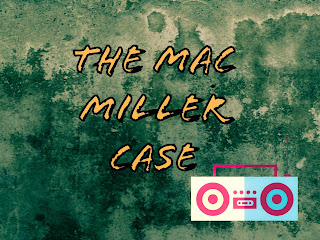Law Enforcement's Public Relations Hypocrisy
Law enforcers have created many types of programs and
community events that are supposed to have the public view them in a different
light other than professionals who simply arrest, prosecute, and imprison
citizens. Some of these programs have
been around longer than other ones, some are pilot projects that come and go, and
there are some programs that are generated to produce positive results for the
legal professionals. The intent of the
people who create and participate in these programs is typically good and some
of the results are positive, yet there is an enormous problem that arises when
one takes a step back and views the actions of laws enforcers in its entirety. Explaining further, the significant amount of
biased arrests, prosecutions, and incarceration rates makes many of the
programs that law enforcers participate in look phony and simply engaging in
public relations work so that they do not appear to be completely prejudiced or
ill willed in their actions.
The above-mentioned
statement is not suggesting that these programs are set up for these purposes
only, but the actions by law enforcers does make these programs look useless
and not credible at times. For example,
across the United States there are youth programs that are set up by local
police departments in minority neighborhoods.
These youth programs are usually afterschool youth centers that
implement recreational activities with intentions of building a bond between
the children and local police officers.
The suggested results are that if a positive bond can be made early,
then negative thoughts about law enforcers and future criminality can be
eliminated. Given the current
disproportionate number of minority offenders – in both the adult and juvenile
justice systems – this makes police departments and other law enforcers look
foolish and fraudulent in these youth programs in minority neighborhoods.
Another
public relations effort by law enforcement agencies that appears to be
hypocritical are probationary and reentry courts. These programs are not only unnecessary
because of probation and parole offices, but also make the police officers, judges,
and prosecutors look silly as they stand there and act concerned about an
offender who was arrested or prosecuted and sentenced in the same jurisdiction. Where was the care and concern prior to the
legal intervention? Helping offenders
without arresting them and prosecuting them seems more reasonable and would
allow the law enforcers to focus on something more important rather than trying
to play social worker after legal interjections. Again, this is where the idea that these
programs are created to make legal professionals look good to themselves and to
the community arises. The results of many of
these probationary and reentry courts does not supersede the millions of people
who have been arrested, convicted, imprisoned, and given civic death because of
the same system that these professionals operate in.
As aforementioned,
some pilot projects have been known to be very successful. For example, Operation Ceasefire and the
alike programs have demonstrated that preemptive tactics that entail care for
individuals and the community decreases criminal activities and, in turn,
increases positive benefits for offenders and non-offending civilians. Funding for programs like these fades
in-and-out, and usually after a program is no longer running the previous unlawful
behaviors return and, at times, increase and worsen. The question that needs to be asked is
this: If programs like Operation
Ceasefire and other projects with similar practices work so well as they are
running, and when crime rates rise when the programs are no longer being
operated, why are these programs not fully maintained or not becoming the day-to-day
procedures for the criminal justice system?
The real answer is because society would not need as many police
officers, courtroom professionals, and corrections personnel.
In
summation, many of the programs and daily activities of practitioners in the
criminal justice system are set up for good reasons. Yet, when the behaviors of the practitioners are
observed in its full realm then the hypocrisy of these programs can be easily
noticed. The United States has the
highest incarceration rates in the world, a disproportionate number of minority
offenders involved in the system, and when a program works that instills proper
obedience to the law and collective efficacy it appears that these programs are
underfunded and not fully implemented in a longitudinal manner. Crazy, America! Fuckin’ crazy! We have a legal system that thrives on not
changing for the better.


Comments
Post a Comment